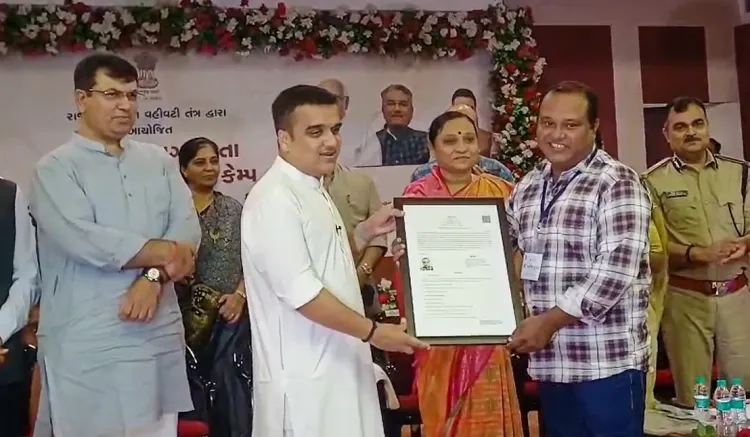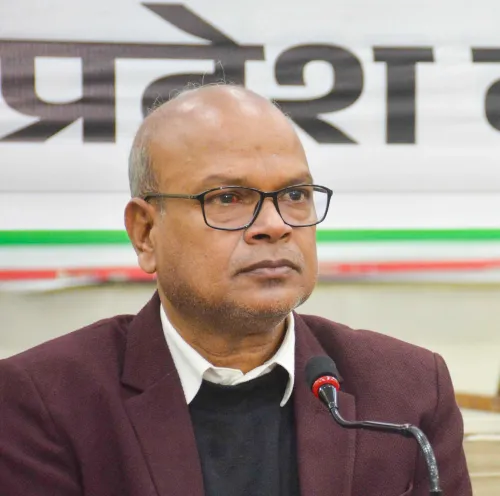Have 185 Pakistani Refugees Been Granted Indian Citizenship in Rajkot?

Synopsis
Key Takeaways
- 185 Pakistani refugees granted Indian citizenship.
- Significant impact of the Citizenship Amendment Act (CAA).
- Emotional stories from beneficiaries highlighting their struggles.
- Importance of safety and recognition for religious minorities.
- Ongoing discussions around inclusion and equality in India.
Rajkot (Gujarat), July 25 (NationPress) In a remarkable event under the Citizenship Amendment Act (CAA), 185 individuals who relocated from Pakistan received Indian citizenship during a special certificate distribution ceremony held at Atmiya College, Rajkot on Friday.
The Home Minister of Gujarat, Harsh Sanghvi, presented the citizenship certificates, symbolizing a moment of joy and relief for families who have long awaited acknowledgment in their new home.
During his address, he highlighted the emotional and social significance of this decision.
"Today, we have granted Indian citizenship to 185 people. Many of these families lived in constant fear and endured severe hardships in Pakistan. They shared that their daughters were frightened to even attend school. The situation for minorities there is extremely concerning," Sanghvi stated.
He also credited Prime Minister Narendra Modi and the Citizenship Amendment Act for facilitating this transition.
"Thanks to the CAA, countless dreams are being realized. Those who faced persecution for their beliefs—Hindus, Sikhs, Christians, and Buddhists—now have an opportunity to live with dignity in India. I am proud and grateful to PM Modi for bringing this to fruition," he added.
Beneficiaries Laxmiben and Labh Hurbai, who migrated from Pakistan years ago, shared their heartfelt stories.
"I came from Pakistan in 2011 and have waited many years for this moment," Laxmiben expressed. "It feels wonderful to finally be acknowledged as an Indian citizen. Life here is better and safer than it was in Pakistan. Many of my relatives remain there, and they too wish to return to India."
Labh Hurbai, who arrived in India in 2015, expressed similar feelings.
"There is a significant difference in living in Pakistan compared to India. I am extremely happy to be here, and I hope my family members still in Pakistan can also reunite with us," he stated.
The CAA, enacted in 2019, provides a pathway to Indian citizenship for non-Muslim religious minorities from Pakistan, Afghanistan, and Bangladesh who entered India before December 31, 2014. Although it remains a contentious issue politically and faces protests, particularly concerning allegations of religious discrimination, the law has opened doors for many refugees seeking safety and stability.
The application process for citizenship under the CAA is governed by Section 6B of the Citizenship Act, 1955. Applicants must demonstrate their origin, religion, date of entry, and basic proficiency in an Indian language.










